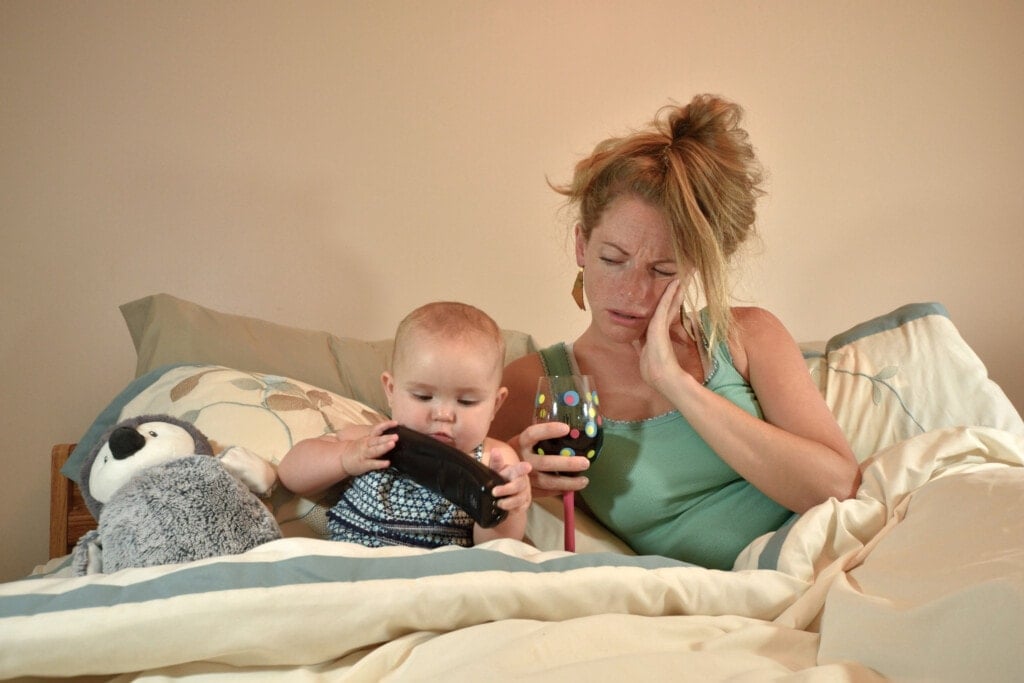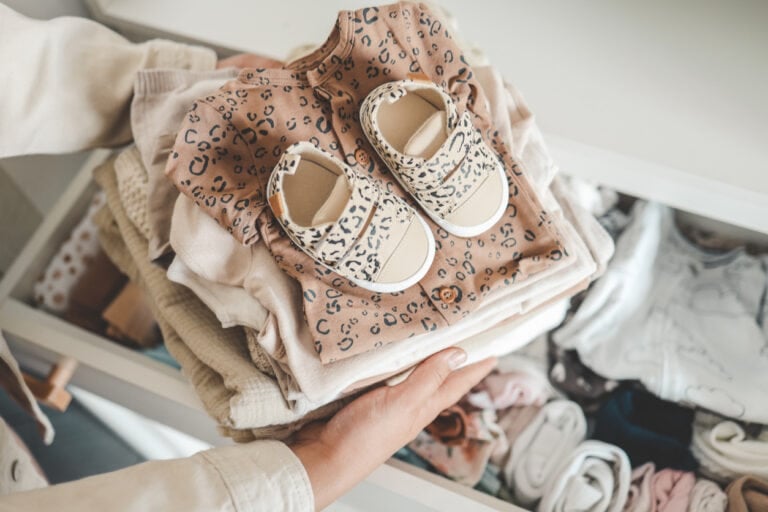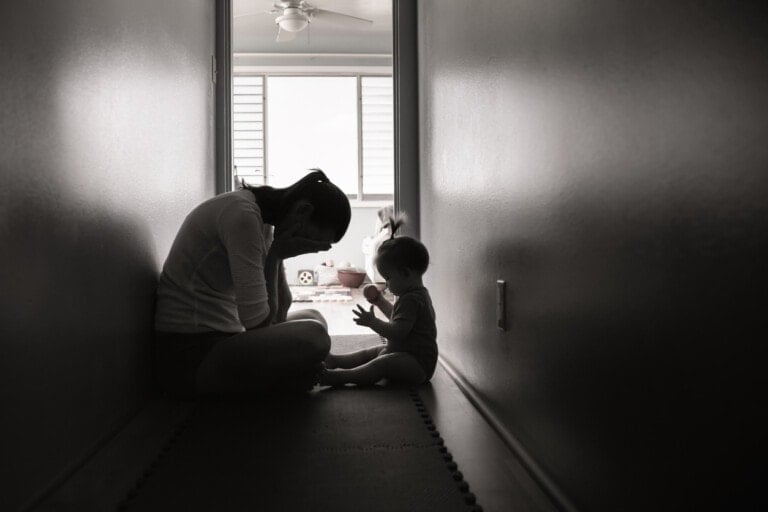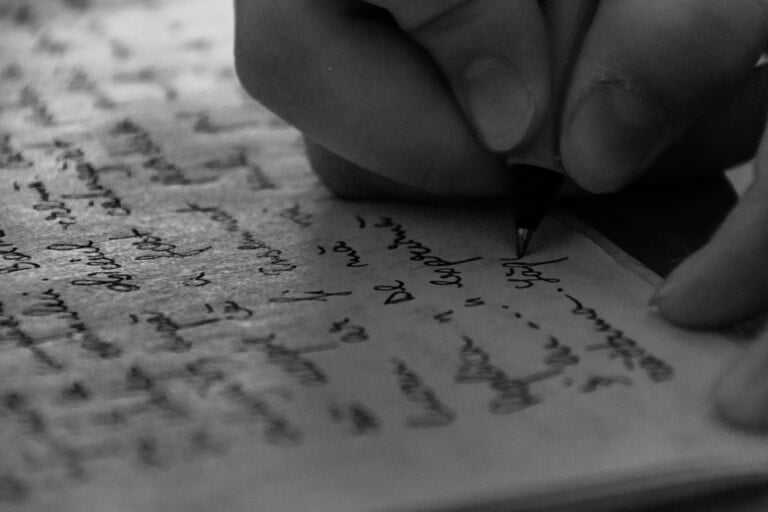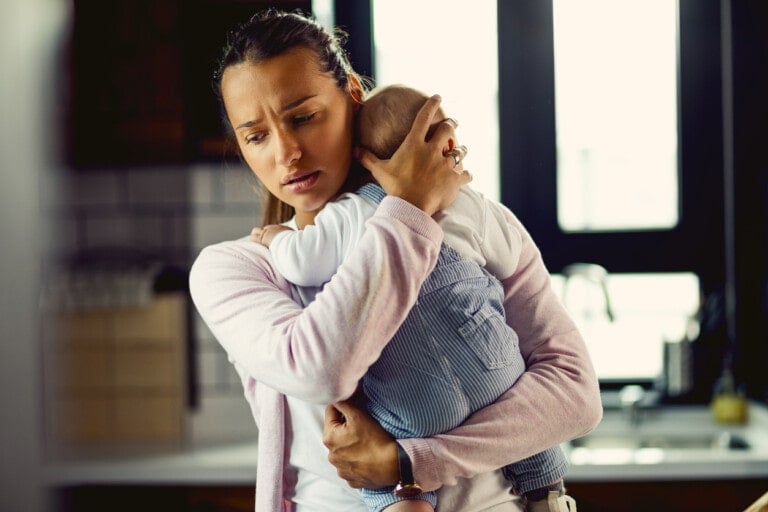If you are a parent, specifically a mother, you may have found yourself laughing at a funny quote about drinking a glass of wine to cope with your day of parenting. So often, we as mothers joke that a day of parenting is always best ended with a tall glass of wine. It has become so common in today’s society that it has earned itself a title: Mommy Wine Culture. Yes, it has become a thing. Many mothers are using alcohol to cope with their day as a parent. And it has become accepted, even celebrated at times.
However, we must ask whether this is a healthy thing to do or even joke about. As a society, we tend to agree that having a glass of wine or a cocktail to unwind after a particularly stressful day at work is accepted. Would you be concerned if you had a friend drink every day after their job at the office and openly joke about it? Some may argue being a mother is the most challenging job there is. So, isn’t a mom having a glass of wine at the end of the day the same thing? If so, how can this even be an issue?
The Appeal of Mommy Wine Culture
Mommy Wine Culture appeals to mothers who may be going through a day in the same clothes, messy bun, and not having a single adult conversation. It has become an easy way for moms to connect. A way to socialize and unwind after a long day while commiserating on the same child-centric topics. That doesn’t sound too bad.
In some ways, it is not a bad thing. But it can become something more. Lisa Jacobson, an associate history professor at the University of California, Santa Barbara, who researches families and food and drink culture, has said, “I recognized instantly why ‘wine mom’ humor resonates with mothers. It allows women to embrace their identity as mothers while refusing to be solely defined by that role. Something that mothers are fighting in the view of society daily.”
So how can this culture that brings us some laughs and resonates so much with us mothers be bad? There is a whole market that this untold truth has created. You can find wine glasses, koozies, and other items with phrases like “Mommy Juice” or “Mommy’s Therapy is Wine.” Even modern-day media has gotten on the bandwagon, hosting a skit on SNL about Mommy Wine Culture. Having a glass of wine to unwind and relax after the chaos of your day is not a bad thing. Enjoying wine with a partner over a “grown-up” dinner or date night is socially acceptable and fine.
The Danger of Mommy Wine Culture
But, other levels of this new culture raise concerns and may even be eye-opening to us parents who may be indulging a little too much. Some mothers will drink throughout the day, even while driving. Maybe they are even drinking during naptime to help them cope with their hard morning and feel better for the remainder of the day. That coffee cup on the counter no longer holds coffee but a stronger drink they have become dependent on. This is when Mommy Wine Culture could inadvertently be covering up alcohol dependency. There are many ways to define this type of dependency. Learning more about what it is and the differences between alcoholism, alcohol dependency, and binge drinking is the first step to identifying if you need more support.
Further, this new culture, although often laughed off, tells a whole different story to our children. A culture formed to cope with our parenting and stressful days could affect our children more than just being stressed out. While wearing that “Mama Needs Wine” shirt, we are giving them the message that being their mother and a parent is burdensome and that wine or alcohol will make us happy. That is certainly not the message mothers intend to send, yet that is what we are portraying. We are inadvertently teaching them to depend on something to cope with stress instead of working through it.
Better Ways to Handle High Stress
The COVID-19 pandemic has undoubtedly not helped ease stress. A 2020 study by RAND Corporation showed that women had increased their heavy drinking days by 41% compared to before the pandemic.1 It has been a known fact that most mothers were leaving the workforce in high numbers during the heat of the pandemic and taking on the bulk of remote learning duties (and everything in between), making parenthood more stressful than ever.
So yes, if we find ourselves as mothers more dependent on alcohol than before, then there are some questions that we need to ask ourselves. And we need to seek outlets that can help give us support to change these habits. Maybe it isn’t affecting our days significantly, but we enjoy that glass of wine a little more than we used to. Our children will thrive when we, as mothers, are more stress-free, present, and positive. We can achieve these traits with other habits that may make us feel better than that glass of merlot. Things like starting a new exercise program, indulging in a stress-release activity like a bath, or even having a family dance party!
We Can Do Better
This Mommy Wine culture seems rooted in mothers seeking common interests with other adults. Someone who understands what it means not to be able to shower. Or to eventually shower and then get spit up on 3 minutes later. And then, after all that, realize you never moved the laundry to the dryer, so you do not have anything to wear.
Trust me, we all get it. We all understand. We all have been there in some fashion. But perhaps instead of raising our glasses, we should focus more on lifting each other up. Sure, we can do it with a drink. But more importantly, we can do it with a supportive community that understands and helps make us all feel a little more human again. Maybe then, if we felt like we had a tribe there to support us, perhaps the Mommy Wine Culture would become less about drinking and more about celebrating a day of accomplishment in the world of motherhood!
Resources
If you or someone you know struggles with substance abuse and needs more help and information, see the resources below:
- Substance Abuse and Mental Health Services Administration (SAMHSA) National Helpline at 1-800-662-4357 for information on support and treatment facilities in your area.
- Addiction Center: Alcoholism Causes And Risk Factors
- NIAAA National Institute on Alcohol Abuse and Alcoholism













